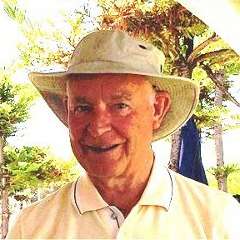The rich brooding prelude of bassoon and deep bass sounds from the Bruckner Orchestra Linz that open Wagner’s Siegfried speak to me of Mime and his home deep in the forest. But for this production in the Landestheater Linz his home was in a run-down favela, television turned on, piles of junk visible outside. The beautiful voice of Matthäus Schmidlechner’s Mime was thrilling, bemoaning his lot in life. Siegfried (Lars Cleveman), a fine clear tenor, entered with taunts and provocations, leading to a discussion of why Siegfried always returned – a gem of expressions and feelings: Cleveman conveying aggression, boredom, frustration and Schmidlechner whining about being taken for granted. Yet there was a memorable poignantly touching moment when, as Siegfried’s mother was being mentioned, both Cleveman and Schmidlechner were as one, singing sweetly and reflectively, holding one of her dresses sharing the moment, heads almost touching, absorbed in its significance for each.
Bass-baritone Gerd Grochowski, Wotan-turned-Wanderer, again demonstrated the richness of his range and, although without eye patch or spear, was immediately recognised by Mime. As they played the three questions game, the Wanderer produced a VCR tape to illustrate the first, a laptop the second and a tablet for the third. Technology had reached Valhalla. But that was just the beginning. Siegfried, the one who knew no fear, was portrayed as a computer genius. With his sturdy yellow-framed tablet he whipped up a program to successfully forge Notung, his father’s sword, singing encouraging all the while. Then tested the newly forged sword, not cutting through the anvil, but slicing a watermelon in half (at least he did it with one blow!)
Some very fine singing in Act II had to compete with an unusual setting for Niedhöhle, Fafner’s cave (I couldn’t understand what set designer Gisbert Jäkel was trying to achieve). Niedhöhle had become a bank, protected by a large stone wall, high security gates and all sorts of electronic paraphenalia. Out front, Alberich (Bjørn Waag) sleeping rough, looking worse for wear, still delivered a beautiful baritone voice. He engendered sympathy for his continuing conviction of one day regaining the ring. So when Grochowski, as the Wanderer, appeared his hackles rose, his voice expressing both his abuse of the Wanderer’s presence and his fear that he may not prevail, until the Wanderer’s reassuring tone convinced him there was no need to be fearful.
As Mime and Siegfried arrived, I was fascinated to reflect the many times throughout this opera Siegfried’s leitmotif was played – naturally, since it is Siegfried’s opera - but how the Bruckner Orchestra cleverly ensured we didn’t miss any occurrence. While Siegfried captured us with the skill of his voice, it was his computer skills that overpowered. Working magic with his yellow-framed tablet in the wink of an eye he had the security gates to Niedhöhle opened, encountered the Wood-bird (lovely sweet voiced, feather skirted Gotho Griesmeier) who tried unsuccessfully to teach him the flute, so programmed his tablet to play the horn, which awakened Fafner. He then won the ensuing computer game with him, mortally wounding the giant in the process. A few more taps on his tablet, entering a security code into the hilt of his sword, and he had the doors to the bank open to encounter Fafner (Nikolai Galkin), a bespectacled, suited, money manager at a large computer screen with the logo “Mach mehr Geld” (Make more money) prominent on the vault behind him and with a large staff of workers, and the inevitable press seeking comment from Siegfried and the Wood-bird. Remarkably, with all these happenings no one was distracted from their singing, the words sometimes at odds with what was occurring around them. It seemed to me quite a challenge.
Act III was set in the now vandalised resting place of Brünnhilde. Here the Wanderer summoned Erda, (Bernadett Fodor), who from behind the damaged statue entombing Brünnhilde, appeared singing strongly and confidently even if her words were confused, as first the three Norns, then every available female who had so far been part of the saga, came and stood silently behind her. Wotan’s hold on power was fading, and when brushed aside by Siegfried on his quest to find Brünnhilde, had become a spent force.
Siegfried’s voice has been known to fade towards the end of this long opera. Not so Lars Cleveman. As he unveiled Brünnhilde from her damaged tomb, and they gradually sang themselves into a trusting relationship, two strong voices complemented and reigned supreme. Her “Heil der Sonne! Heil der Licht!” was powerfully sung. I listened rapt as they cleverly, gradually came to terms with their emotions and, overwhelmed by love, from either side of the stage, moved slowly towards each other to finally, passionately embrace.




